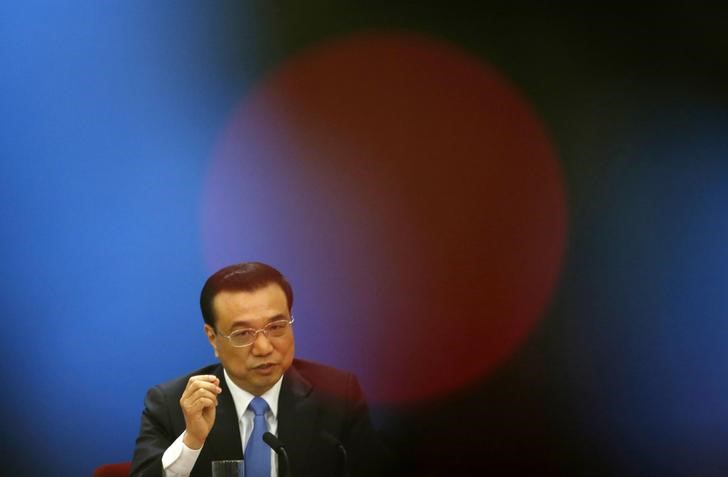BEIJING (Reuters) - Chinese Premier Li Keqiang will sign aircraft, currency and agricultural deals when he visits South America next week, an official said on Wednesday, a part of the world where China has deep trade ties but traditionally limited political influence.
Li will travel to Brazil, Colombia, Peru and Chile on the May 17-29 trip, and, as is common with visits by top Chinese leaders to resource-rich nations, will sign what will likely be a series of impressive agreements.
China, the world's second-largest economy, is buying oil from Venezuela, copper from Peru and Chile and soybeans from Argentina and Brazil, for example. Peru and Chile also both have free trade deals with China, and Colombia is looking at one.
In return, China has invested a total of more than $100 billion as of the end of last year, according to Assistant Chinese Commerce Minister Tong Daochi.
"During Premier Li's visit to these four countries, we will discuss important issues like industrial cooperation, infrastructure, free trade zones, technical economic cooperation, training and financial support," Tong told reporters.
"We expect that through further deepening this cooperation, China and Latin America will join hands to promote global prosperity and recovery."
Giving a flavour of what would be agreed, Tong said that China and Chile would sign currency swap and yuan settlement agreements, while in Brazil there would be a Brazilian beef export deal.
In January, Chinese President Xi Jinping pledged $250 billion in investment in Latin America over the next 10 years as part of a drive to boost resource-hungry China's influence in a region long dominated by the United States.
Last year, China and Brazil agreed $7.5 billion in financing for Brazilian miner Vale SA and the purchase of 60 passenger jets from planemaker Embraer.
Without naming Embraer, Tong said that aviation would be another focus area for Li in Brazil.
"On this visit by Premier Li, we will discuss further purchases and cooperation with Brazil on aviation," he said.
China would like to import more value-added products from Latin America, Tong added, rather than just relying on raw materials such as iron ore, sugar and soy beans.

"We hope that Latin American countries, particularly these four, can develop the Chinese market more, and export more products which suit Chinese consumers," he said.